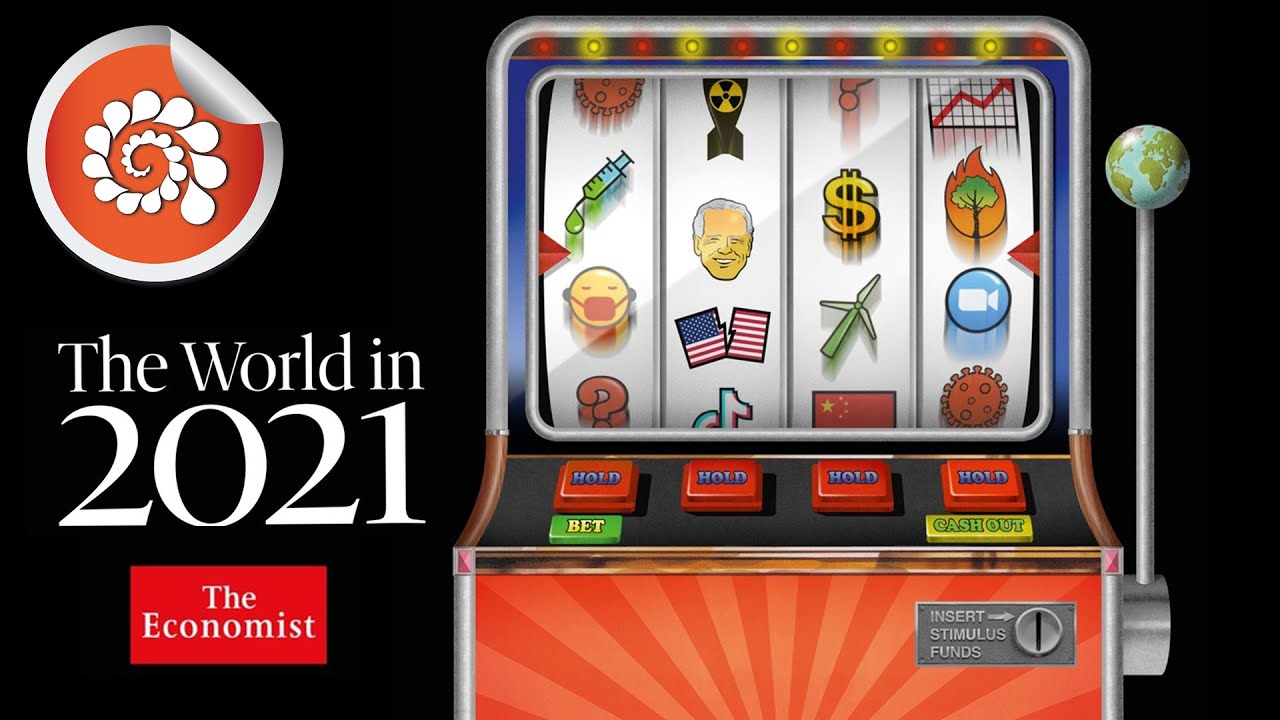
After a tumultuous 2020, what does 2021 have in store for businesses, the economy, culture and politics?
The Economist has just published the cover of "The world in 2021" - The Economist’s predictive look to the year ahead.
As you might guess, the coming year will be particularly unpredictable thanks to the pandemic, an uneven economic recovery and fractious geopolitics. But it’s not all doom and gloom.
Tom Standage, Editor of “The World In 2021” and Deputy Editor of The Economist shared the key insights from the predictive look to the year ahead, pulled together by some of the world’s most prestigious journalists and acclaimed leaders from around the world covering business and finance, technology, culture and government. This mix of contributors makes "The World in 2021" uniquely authoritative in its predictions of trends and events.
What might 2021 have in store for us?
Attempts to bring back retail and hospitality after lockdown could be the area that sees the greatest increases in innovation. Tom highlighted:
The ‘outdoor economy’ at restaurants. The larger, upscale restaurants cannot yet reopen but you can open the ones hat are largely outdoors with a simple menu.
The ‘appointment economy’ in stores. Some high-end retailers are experimenting with this, allowing customers to book virtual appointments with a personal shopper who will walk around the store for their clients.
The ‘touchless economy’, of which the most famous example is the Amazon Go stores with their “just walk out shopping” experience that has removed the checking out process entirely.
Every sector and business is affected by economics and politics and yet it’s a prediction that’s tough to be made as confidently as one might have done in the past.
Tom assumes there will be no vaccine until next year. So economically, you end up in what The Economist has been calling the “90% economy”. Tom explained that knocking 10% off the economy is so nasty that it’s in fact worse than the global financial crisis ever was. Furthermore, the 10% missing is the fun part — it’s the restaurants, the travel, the concerts, the sporting events etc. If people can’t do any of those things, that has a significant psychological hit as well as an economical hit.
“If we look at China, it’s one of those rare cases where we can see the future in the present and shows how we’ll end up in a strange world where we can go to work but we can’t go to the pub.”
Politically, similar to technology accelerating trends such as e-learning. De-globalisation, the ‘de-Chinafication’ of moving supply chains out of China, xenophobia and protectionism are all political trends that will be accelerated by the pandemic and lead to a more ‘Trumpian’ world. With the addition of countries wanting to be more self-sufficient in many other ways. This actually makes everything a lot less efficient and does not protect a country since an open trade system naturally affords a lot more resilience due to the increased trading options to take advantage of.
Could the pandemic cause people to be more cautious in their politics and stick with what they know? Tom called this pandemic a “fork in the road” with two possible approaches. There’s the optimistic view that this could be an opportunity to fix things such as climate change, social care, healthcare etc. Or the alternative view is the populist approach, that this has shown we need to close our borders, not trust outsiders and become self-dependent.
Tom Standage described how with Merkel stepping down next year, Macron looking wobbly and a weakened US, we look set to continue the trend of what is often called ‘the new world disorder’. It’s the crumbling of the post-war rules-based order and the uncertainty of what replaces it.
Regarding the sustainability and climate change, we have long predicted the climate change, but it doesn’t seem to change our behaviours. Will the pandemic change that and deliver the wake up call we need?
The Economist’s annual forecast of the events and trends that will shape 2021 predicts the level of emissions will snap back quite quickly after the pandemic, so this isn’t going to help in that regard.

__________________________________________________
Sources:
https://medium.com/economist-group-media/predicting-the-future-with-the-economist-94f91a07e7ff
https://wfanet.org/knowledge/item/2020/10/08/Webinar-The-Economist-presents-The-World-in-2021
https://www.economist.com/the-world-in-2021

 Président de l'association
Président de l'association